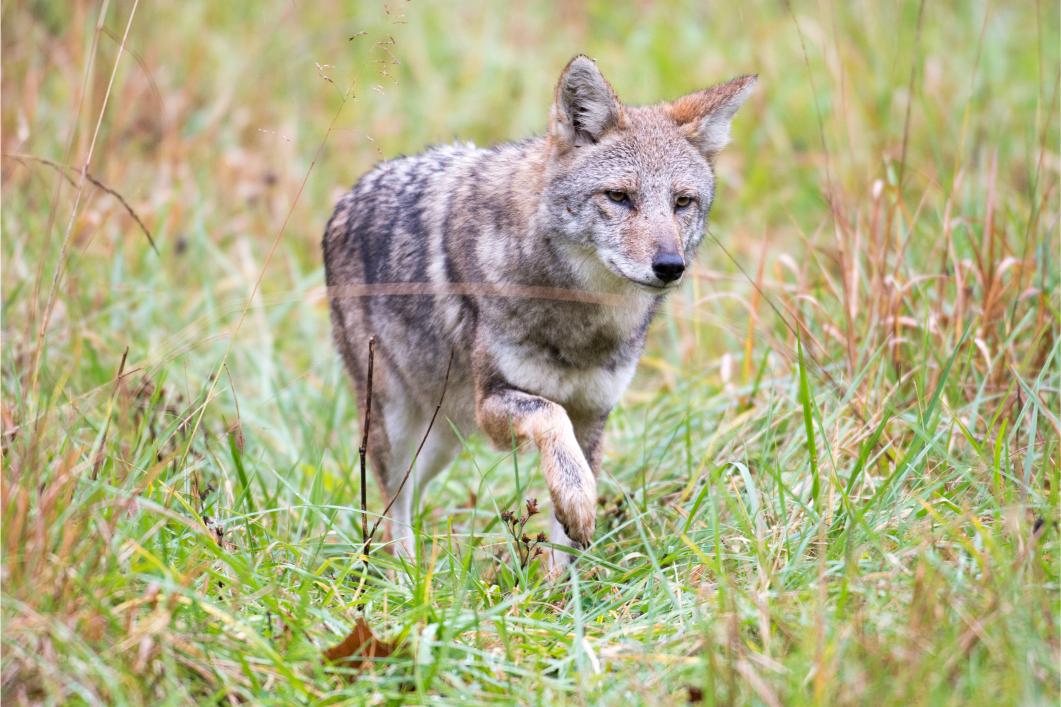Nashville Wildlife Encounters: What to Do If Your Pet Meets a Skunk, Snake, or Coyote

Wildlife encounters are typically unplanned, sudden, and over before you know it. Pet safety is always a priority, but this spring will probably see a spike in wildlife encounters. With our strategies, you can prevent a threatening situation, and continue to enjoy spring in Nashville.
Wandering Around
Scavenging and hunting leads wildlife to our backyards, trail systems, and parks. When they are surprised by the presence of pets and people, certain species can exhibit extremely effective self defense skills, potentially causing serious injury and even spreading disease.
Let’s Talk About Coyotes
Known to commonly wander close to human communities, coyotes show little fear or regard for our boundaries. As such, remove yourself and your pet as quickly as possible from an area known by a coyote.
- Any physical altercation with a coyote should be followed by a veterinary exam.
- Some bites may not be visible right away but can lead to severe infection if unaddressed.
- Be sure to wear gloves when cleaning a pet’s wounds at home.
- Check your pet’s vaccination records to see if they are up to date on all core vaccines, especially rabies.
- Be on the lookout for coyotes around dawn and dusk when they are most active.
- Install motion sensor lighting around your home’s exterior.
- Go outside with your pet during late night bathroom trips.
- Do not feed your pet outside.
- Never approach coyotes, and resist the temptation to run away from them; turning your back on them can have serious consequences.
- Stand up tall, wave your arms, and yell loudly at them. Throw something near them to scare them off. Carry a whistle during dog walks to alert others in the area.
Avoiding Skunks
In addition to their noxious spray, skunks can also transmit rabies, leptospirosis, and internal parasites, and will bite and scratch if they feel threatened enough. As burrowing animals, skunks create ideal dens beneath homes, porches, and out buildings. With close proximity to food sources, skunks can be hard to get rid of and ignore. You may never see skunks, but their presence is obvious when inspecting damage to crawl spaces, wiring, and insulation.
- Seal off areas that can attract skunks
- Keep garbage bins securely closed and reduce access to compost areas
- Clean up vegetation and debris that could attract a skunk looking for a new den.
- Be sure that your pet is up to date with their parasite prevention medication.
Snakes in Tennessee
Because we are home to many species of both venomous and non-venomous snakes in Tennessee, it’s essential to have some awareness of which ones to absolutely avoid, including:
- Copperhead
- Cottonmouth
- Timber rattlesnake
- Pygmy rattlesnake
Just a single bite from any of the above can be fatal, and must be treated as a pet emergency.
- Check the perimeter and fill in any holes or openings that snakes can move through.
- Remove brush or large rocks from outdoor spaces, and train your pet to ignore areas in natural settings that look homey to snakes.
- Consider the rattlesnake vaccination if your pet’s lifestyle places them in close proximity to venomous snake habitat.
- Avoid using retractable leashes on nature hikes so you can control their potential exposure.
Nashville Wildlife Safety
If we can assist you with any questions about your pet’s safety and lifestyle, please call us at (615) 646‑7387. Our team at Harpeth Hills Animal Hospital is always here to help your pet.

